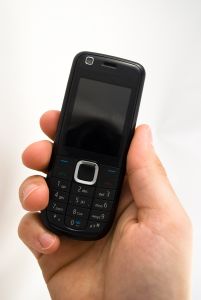83% of Doctors Unhappy with EHR-based Mobile Health Solutions

- Smart phone use throughout hospitals and clinics may not be measuring up to the standards expected by stakeholders and mHealth app manufacturers. Whether it’s Bring Your Own Device (BYOD) adoption strategies or general app and wearable device use, physicians may not be receiving the necessary support and education necessary to adopt mobile health solutions.

A report from the Spyglass Consulting Group shows that approximately 70 percent of polled doctors feel that hospital IT departments and organizations are not investing enough in physician mobile computing necessities at the point of care. This is thought to be due to ineffective mobile EHR applications, poor user support, and inadequate planning.
The report called Point of Care Communications for Physicians 2014 states that it is necessary for hospitals to ensure that mobile devices, communication tools, and general mobile health solutions support team-based care and collaboration among healthcare professionals.
“Physician Smartphone adoption is nearly universal with 96 percent of physicians interviewed using Smartphones as their primary device to support clinical communications,” Gregg Malkary, Managing Director of Spyglass Consulting Group, said in a public statement. “Smartphones are preferred because they are easier to use and provide more enhanced functionality than outdated communication options provided by hospital IT including pagers, overhead paging systems, landline phones and fax machines.”
A wide range of healthcare providers from multiple organizations were interviewed and polled to better understand some of the issues and obstacles of the mobile health market. The telephone interviews began in May 2014 and lasted for a three-month long period. The discussions revolved around workflow issues with team member communication, usage models for mobile health solutions, and common obstacles for the widespread use of mobile devices.
“Efficient communications and collaboration between physicians, specialists, nurses and care team members is critical to enhance patient safety, and support the coordination and delivery of patient care across health settings,” Malkary continued.
Additionally, these technologies will need to incorporate the regulatory requirements of the Patient Protection and Affordable Care Act. Mobile health solutions, for instance, can be incorporated in hospitals to reduce readmission rates and assist in strengthening patient-centered care homes and pay for performance models.
It is beneficial for doctors, nurses, and other medical experts when mobile health solutions are easy-to-use, secure, and connected to the EHR system at the hospital in order to strengthen the coordination and collaboration between team members.
In the report, 83 percent of polled doctors stated being displeased with EHR use to support communication. The reasoning behind this issue is the lack of interoperability between the EHR and other medical devices or mobile data storage systems, limited secure messaging availability, and a not user-friendly system that makes it difficult to access relevant data.
“As we were developing our plans for improving communication among clinicians, we discovered that few hospitals were investing in communication‐driven workflow support, perhaps because meaningful use and HIPAA are consuming all the resources. Still, it seems many IT leaders hope the EHR‐‐a tool poorly suited to the task‐‐will suffice. In reality, overwhelmed nurses and doctors struggle accomplishing necessary communication through the EHR; instead implementing workarounds on their own devices,” Steven Davidson, MD, MBA former CMIO at Maimonides Medical Center, Brooklyn, NY, stated in the report.
Additionally, a large proportion of polled physicians expressed not having the financial resources or clinical tools necessary to support team-based coordinated care. While there are strong market predictions for the mHealth field, there are a variety of challenges that seem to stand in the way of physician adoption of mobile health solutions.
